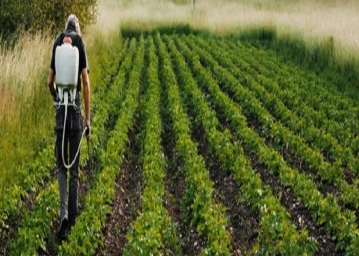India’s agrochemicals industry has been predominantly thriving on generics rather than investing in research and development (R&D) to produce new molecules due to the lengthy process of new product registration.
Ajay Kakra, Executive Director, Agriculture and Natural resources, PwC believes that the process of registration of new molecules needs to be re-looked with priority.
"To develop a new agrochemical molecule is a high investment area that requires much financial investment plus a long gestation period of 3-5 years for registration of new chemicals. High investments have deterred Indian players from developing new molecules and have instead led to an increased focus on generics. Therefore, the domestic agrochemical market will continue to face an uneven competition unless they ramp up investment in R&D.”
Calling for the national policy on agrochemicals amid the government's focus on self-reliance, Dr. R. S. Paroda, Founder Chairman, Trust for Advancement of Agricultural Sciences (TAAS) said, “We must do enough R&D to find new molecules and for that significant investments are required. We still don't have a national institute for agrochemicals. The Ministry of Chemicals has just formed a council to focus on agrochemicals but I believe that should have been done much earlier.”
Jayanti Meghibhai Patel, Executive Chairman, Meghmani Organics, raised an important issue of data protection of R&D information of molecules when submitted to the regulators. There is a huge investment upto Rs. 2,000 crore for developing just one molecule and it goes without saying that companies must feel secure in doing so.”
Sharing a positive development, Dr. Ravi Prakash, Plant Protection Adviser, Ministry of Agriculture and Farmer Welfare comments that there are more than 40 plus applications for registration of new molecules that are currently being looked into at the Central Insecticides Board and Registration Committee (CIB&RC).
"The government is working on an action plan for cutting down on the timeline of registration of new molecules," added Prakash.
As per Rafael Del Rio, Managing Director, Syngenta, “The R&D spending has to increase up to 10-12% to produce new molecules."
“Out of 1,175 new molecules produced globally, only 270 new molecules have been registered in India. India has used just 75 molecules to protect 140 million hectares whereas the US has 700 molecules for the comparatively lesser area. No doubt India needs more molecules,” added Rio.
Experts believe that spending a mere 1-2% of their total turnover on R&D by Indian companies as compared to around 5-10% in developed countries is not a good strategy. At the same time, they concur that the Indian chemical sector is fast realizing the need for new molecules and the COVID-19 pandemic has just accelerated the initiatives. The choice between remaining reproducers of generic molecules or becoming developers of original molecules holds the key to the future of the agrochemical growth story in India.
